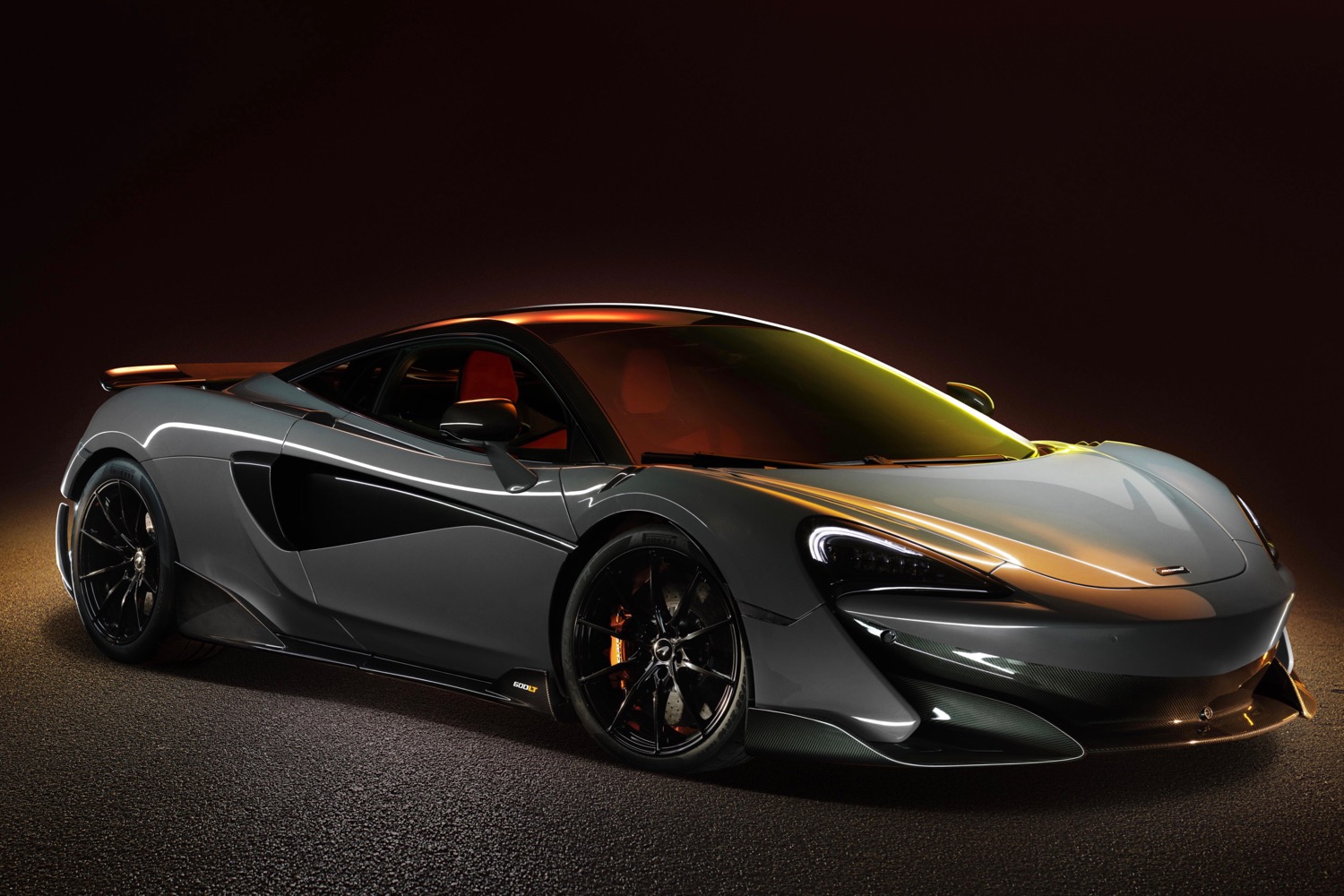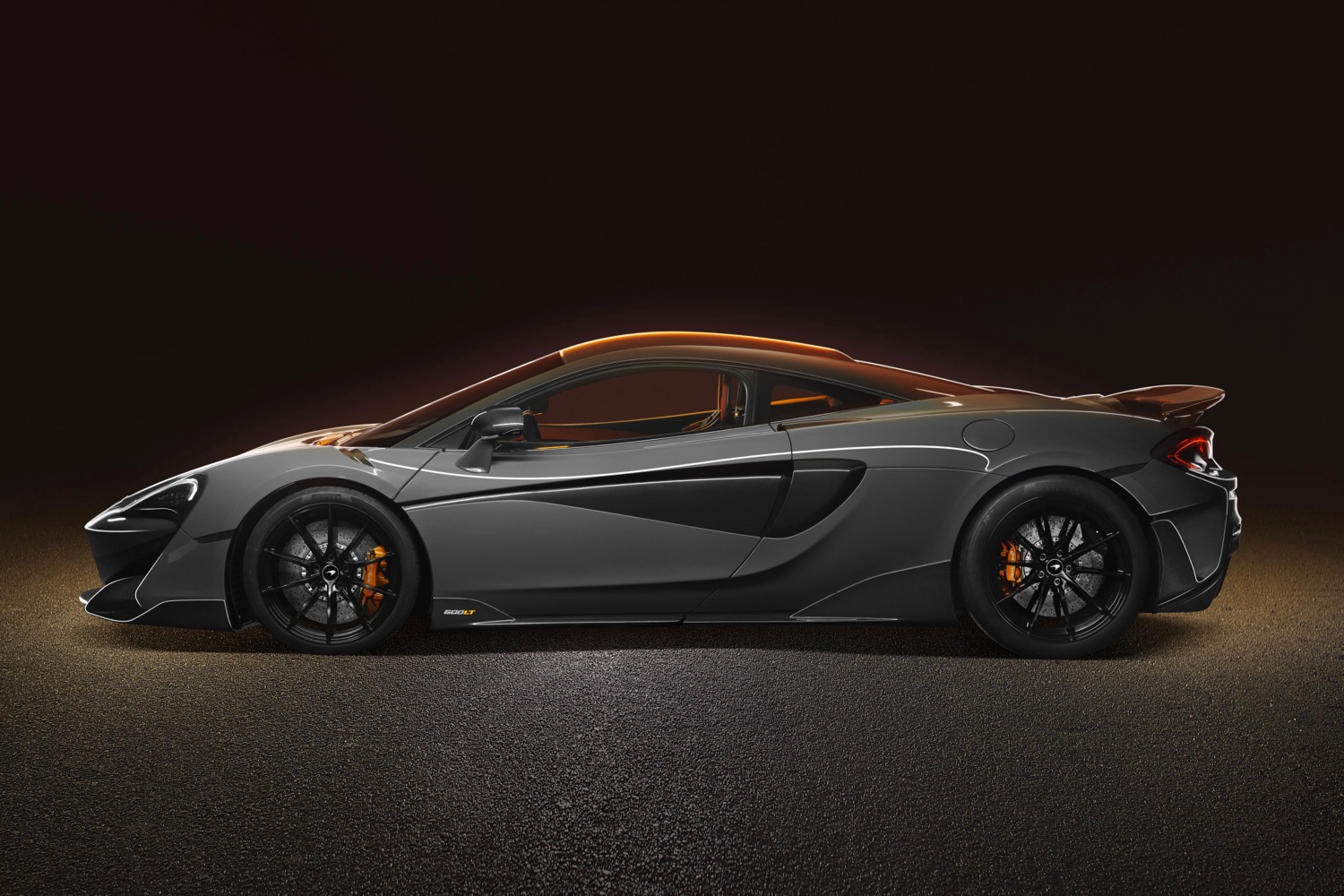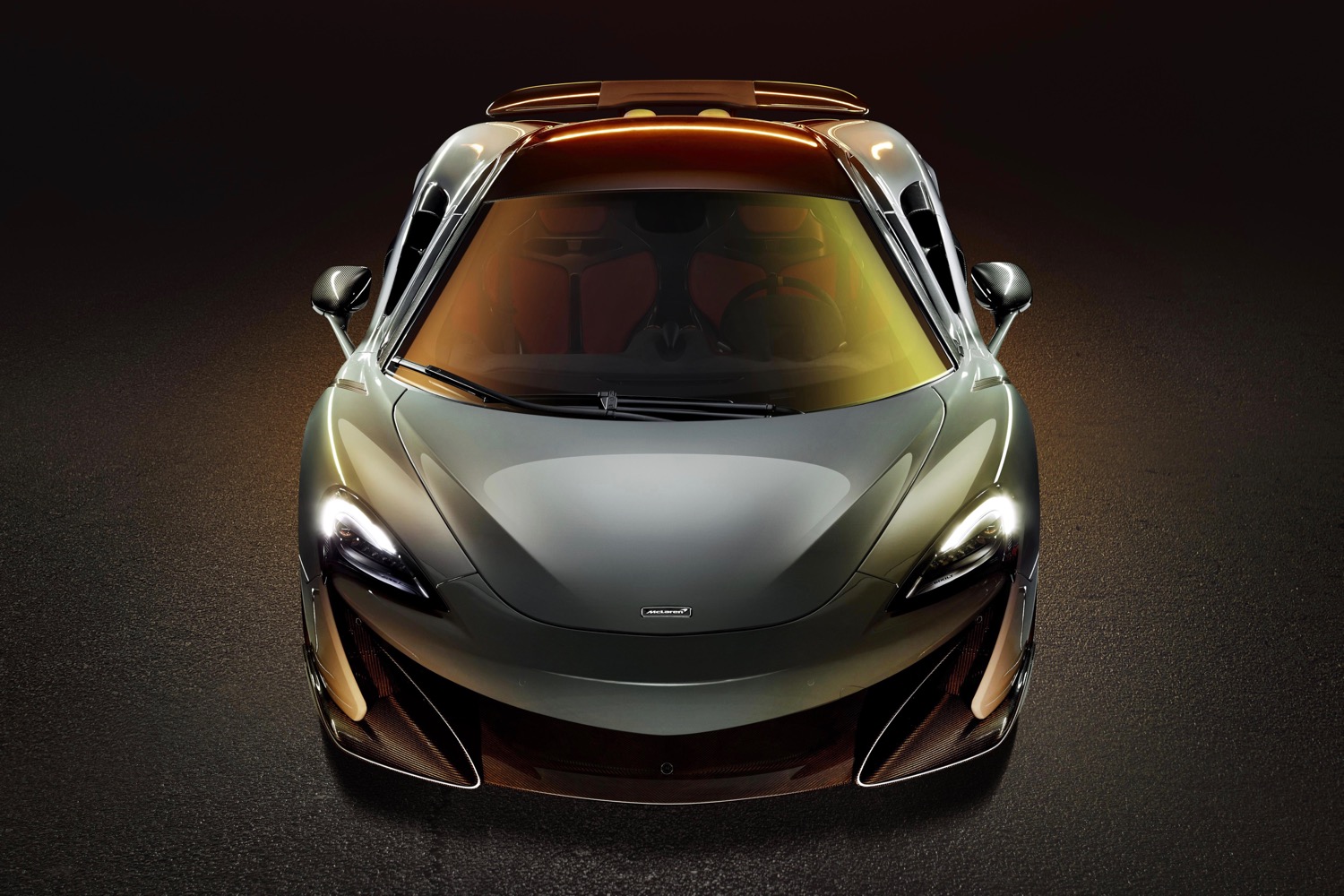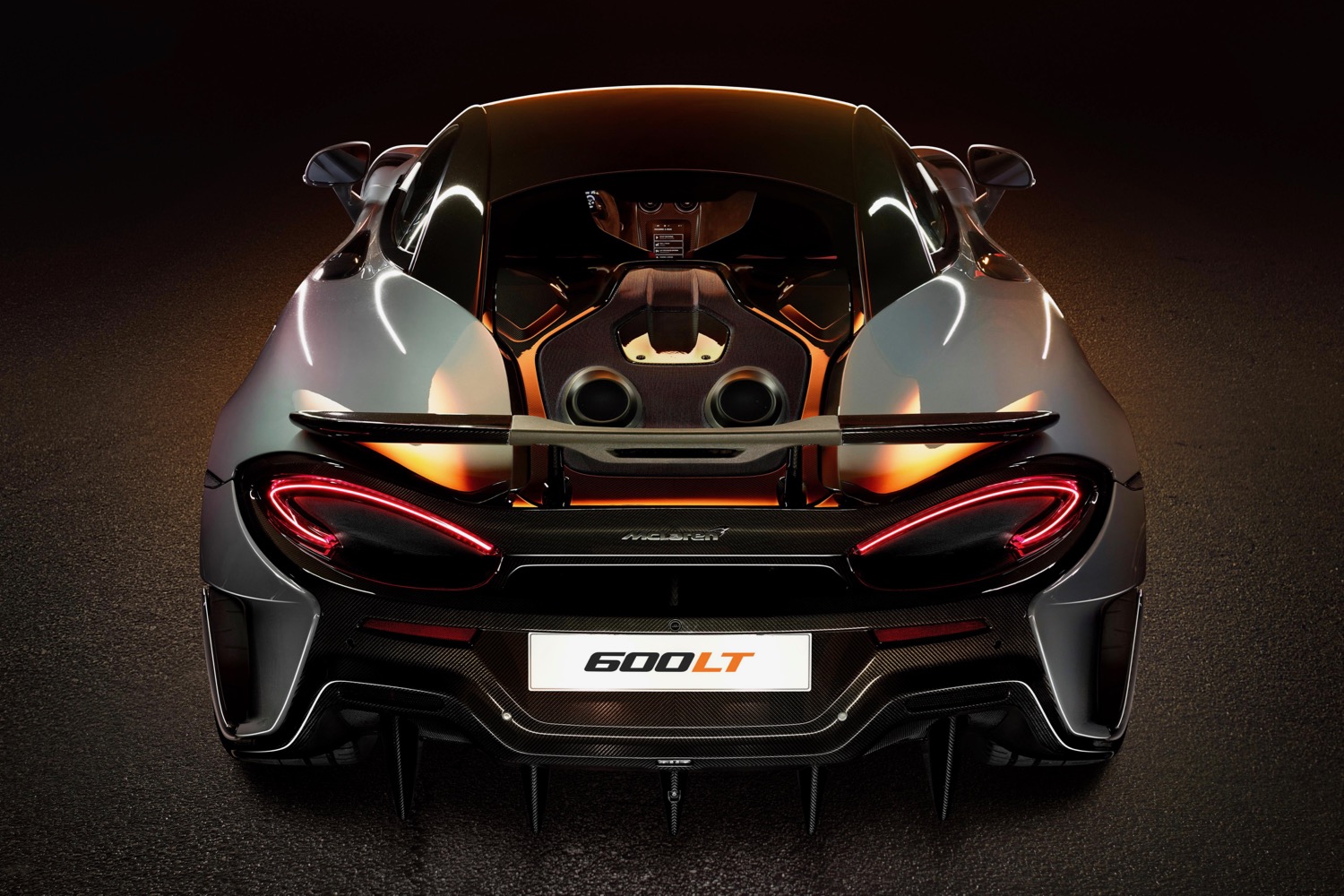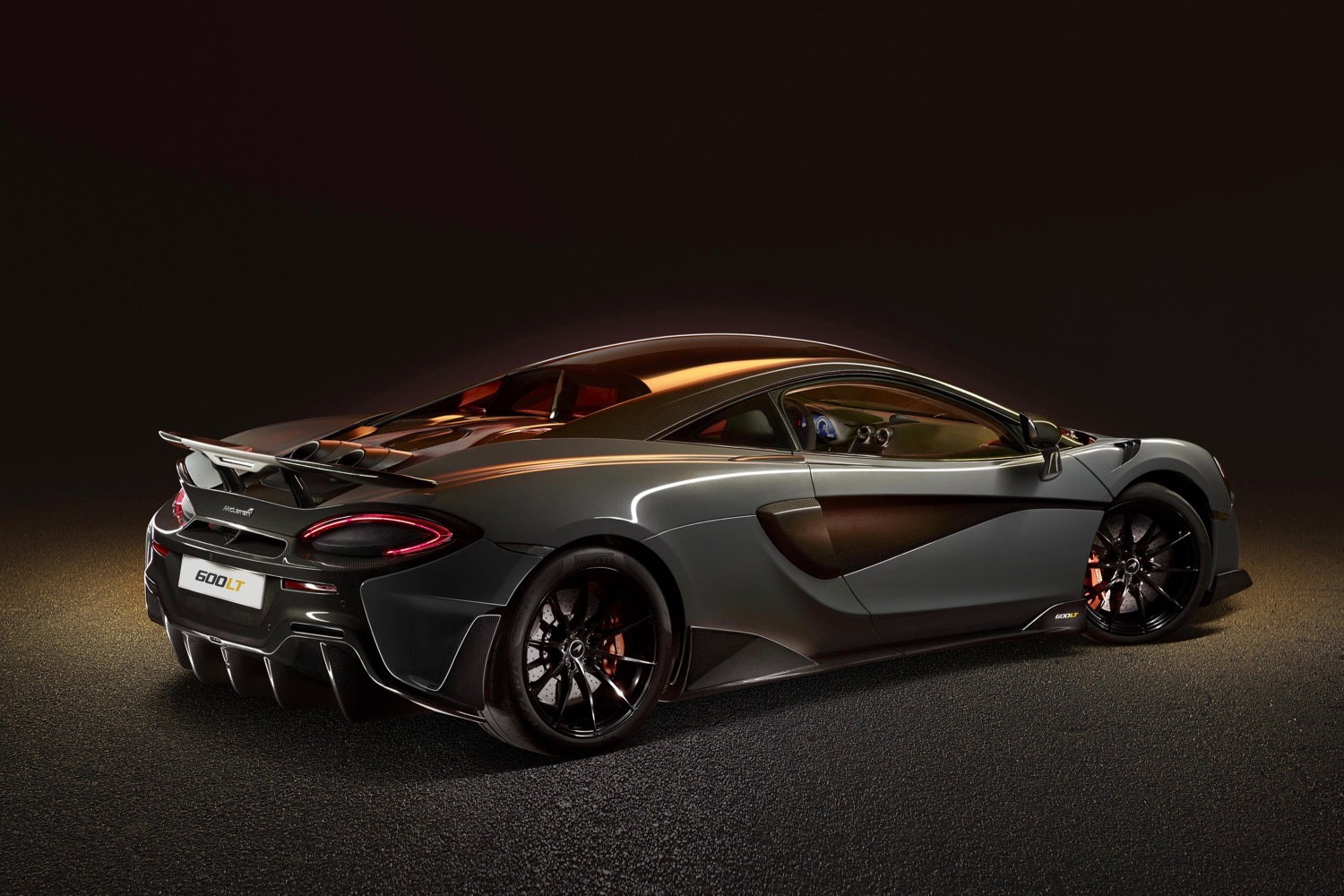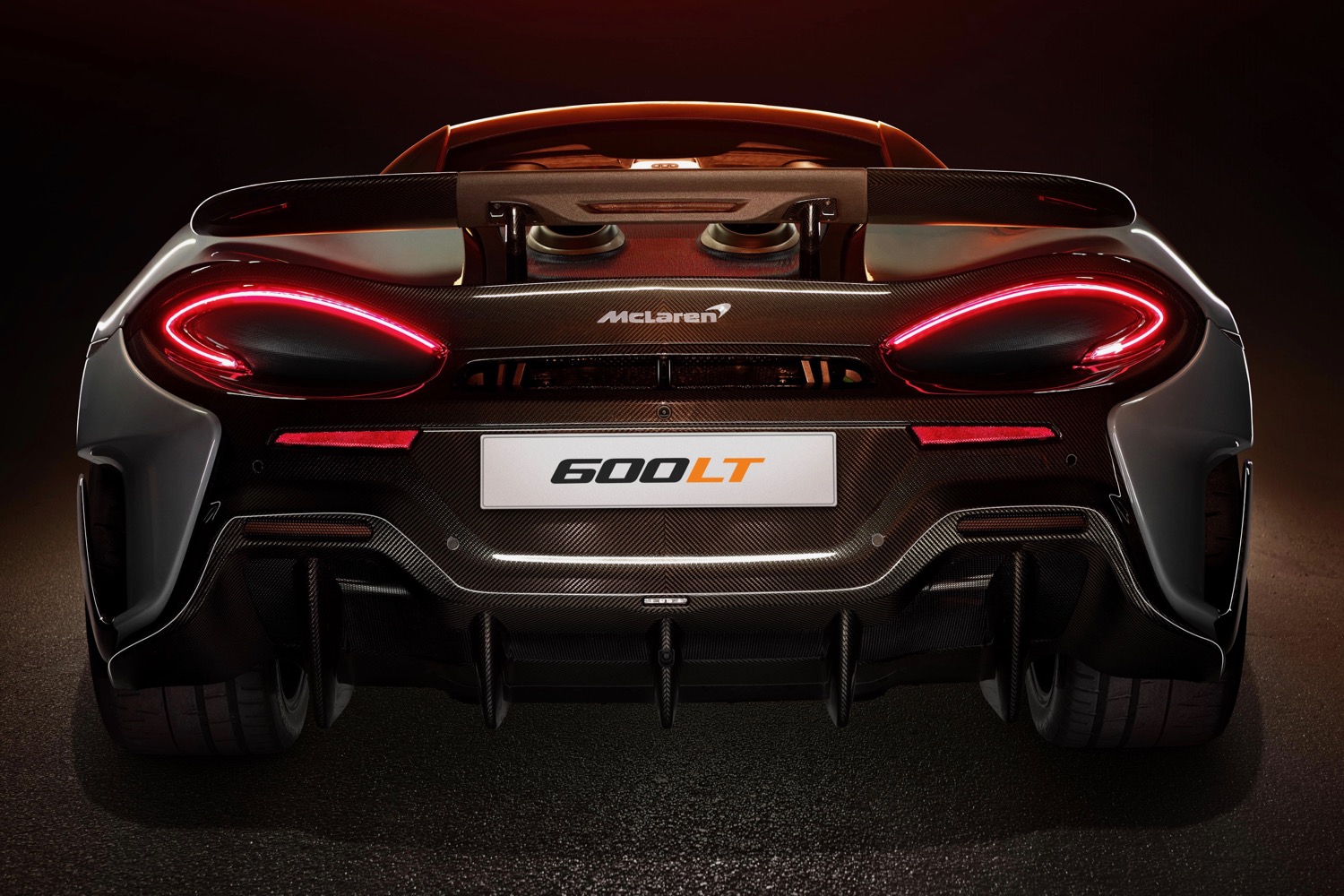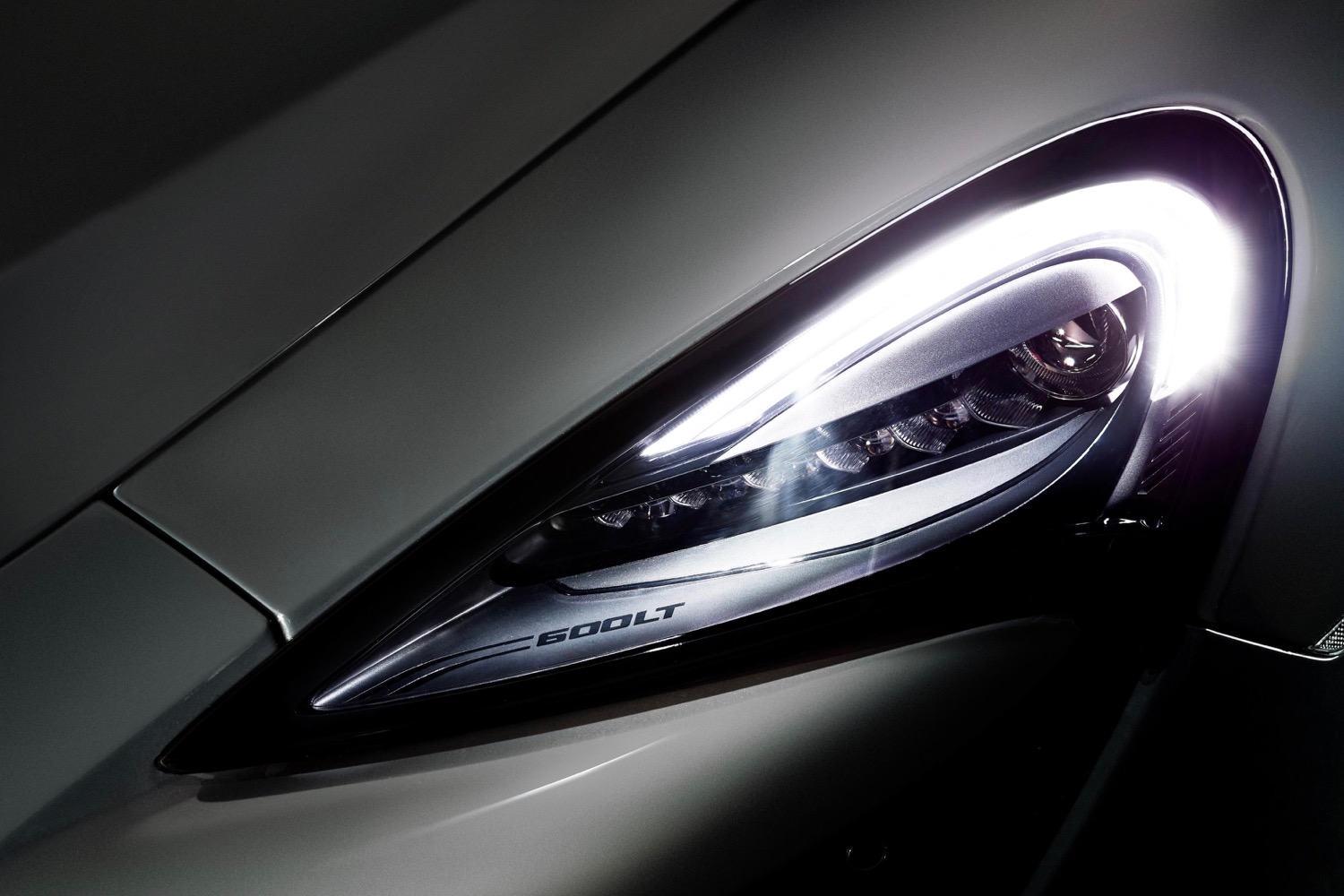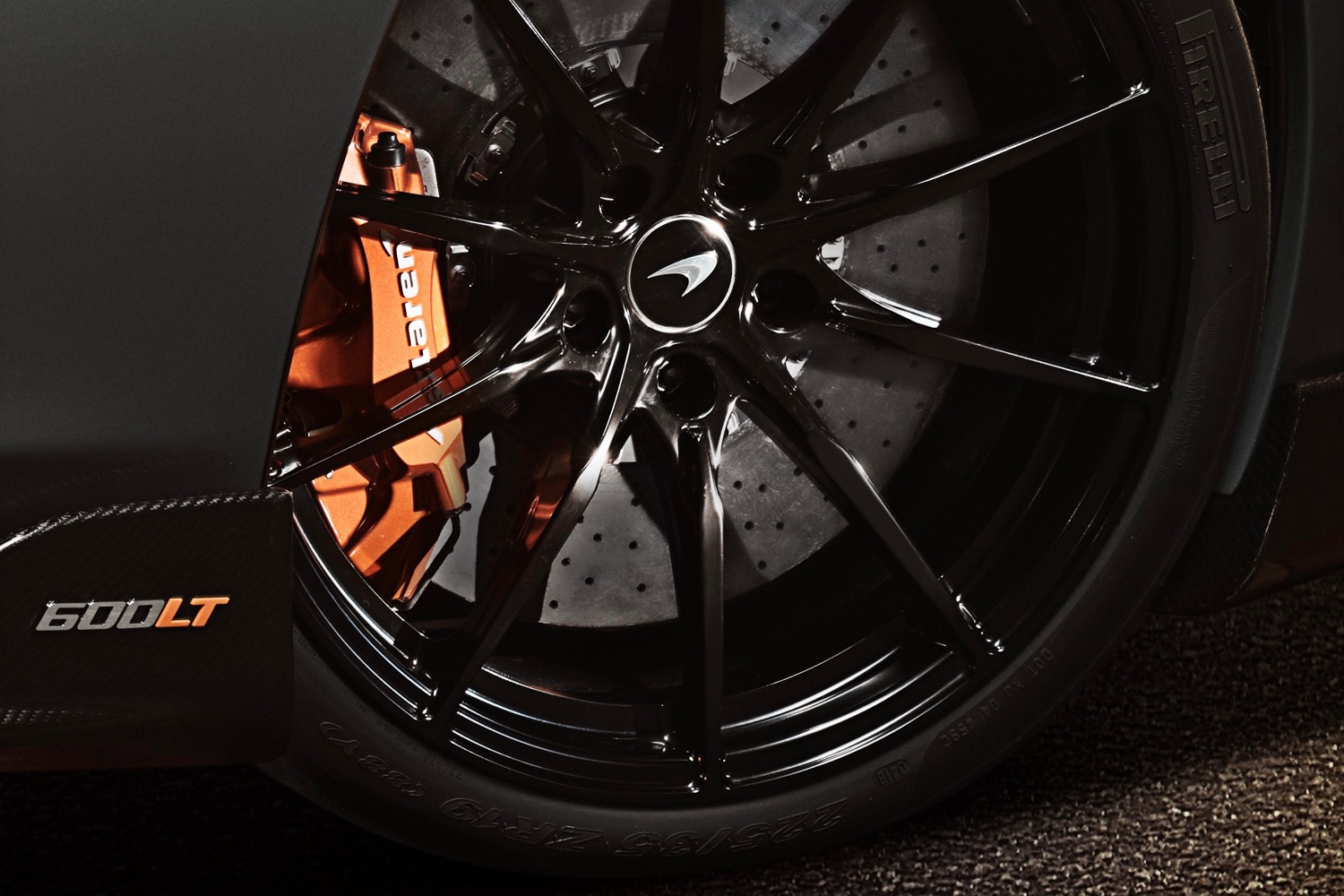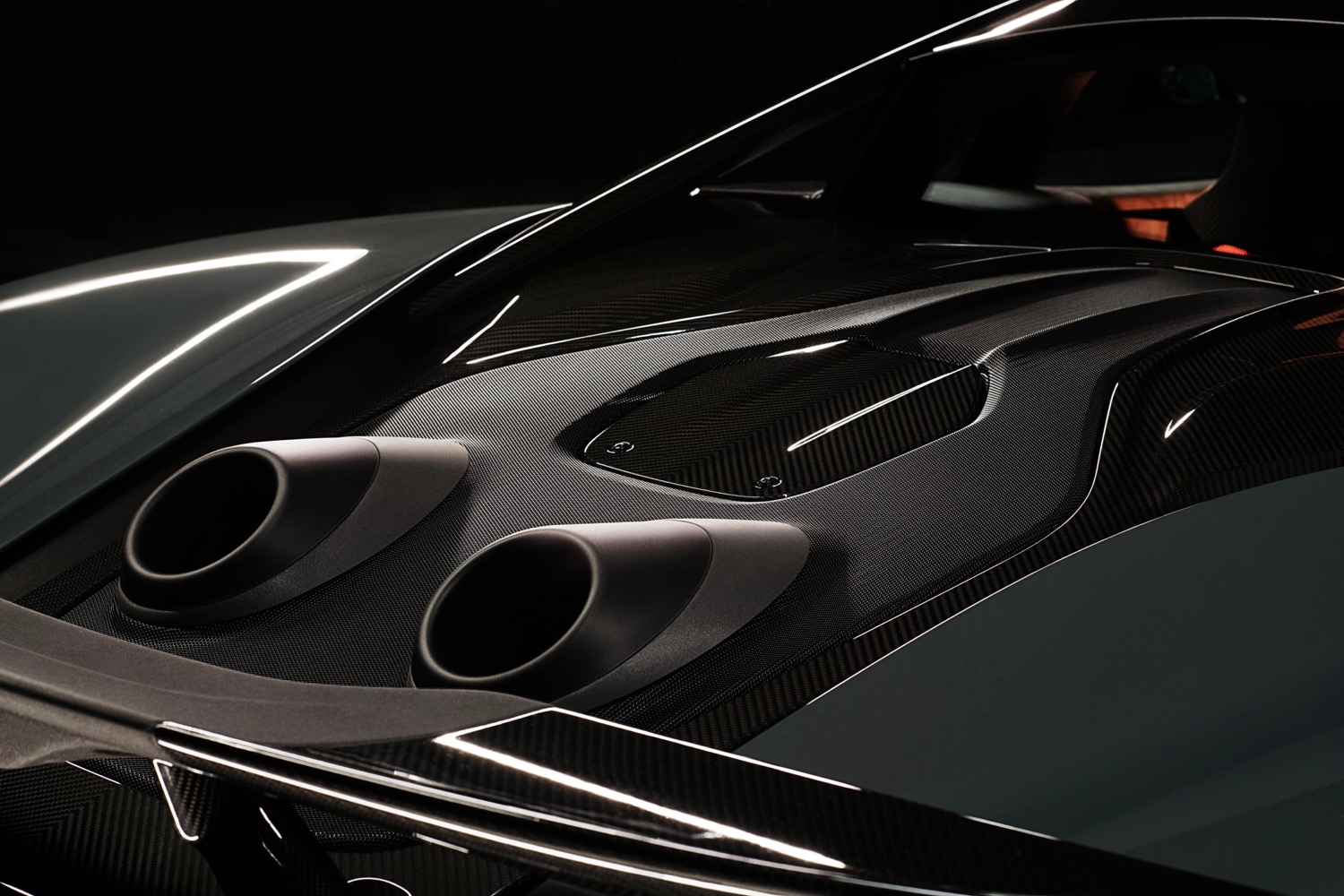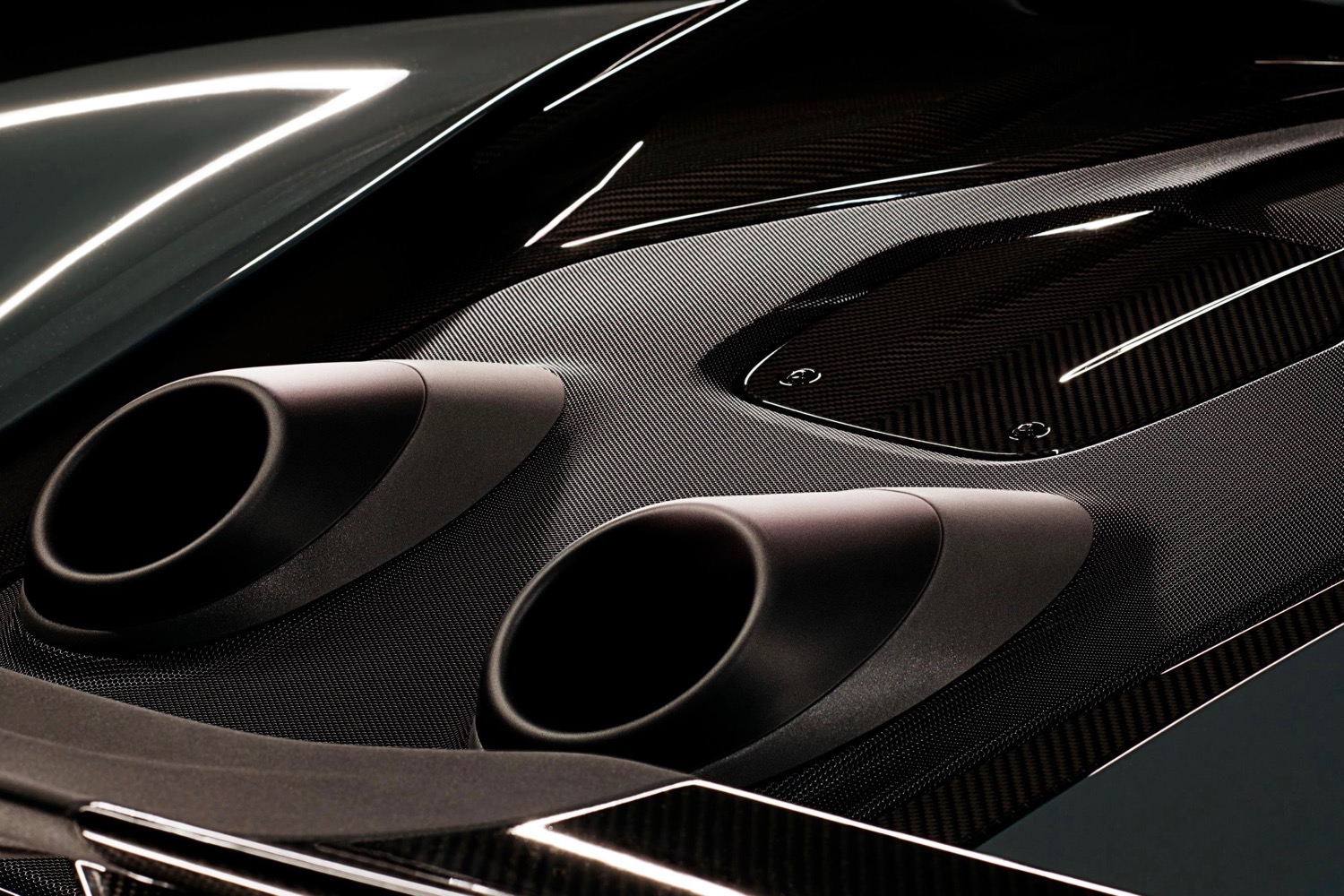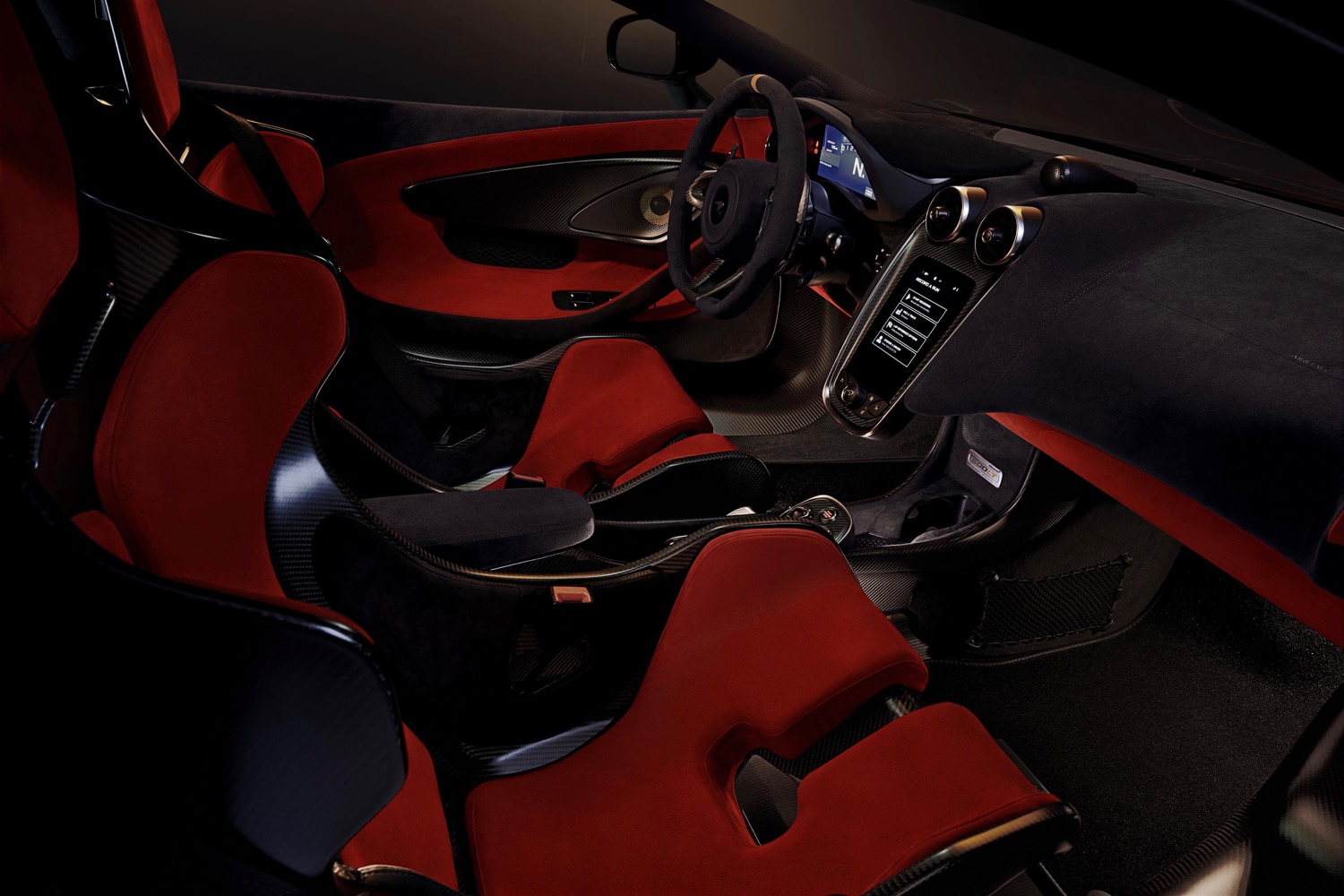McLaren is second only to Porsche in enthusiasm for offering endless permutations of a handful of models. The 675LT was a hardcore model based on the now-defunct 650S and inspired by the McLaren F1 GTR “Longtail” race car of the 1990s. Now McLaren is applying the same formula to the smaller 570S.
The McLaren 600LT is a lighter, more powerful version of the 570S coupe that tries to channel some of the spirit of the 675LT and the “Longtail” race car, which debuted in 1997 and racked up six wins in its debut season. The “Longtail” name refers to the race car’s lengthened rear bodywork, which was meant to improve aerodynamics. McLaren revived the name in 2015 for the 675LT. Just as that model was an upgraded 650S, the 600LT takes the 570S into more hardcore performance territory.
Increased use of carbon fiber for the bodywork helped reduce weight by 211.6 pounds, according to McLaren, bringing dry curb weight down to 2,749 lbs. The 600LT is also 2.9 inches longer than a 570S, and a new front splitter, side sills, rear diffuser, and fixed rear spoiler help generate more downforce, McLaren said. A top-exit exhaust system, with tailpipes sticking straight out of the engine cover, not only looks cool but saves weight, according to McLaren.
McLaren also applied its weight-saving philosophy to the interior, which features carbon fiber racing seats, Alcantara trim, and little else. In lieu of the standard seats, even lighter buckets from the McLaren Senna can be ordered. Buyers can also opt for a carbon fiber roof and vented carbon fiber front fenders from the McLaren Special Operations personalization program.
The 600LT uses the same mid-mounted 3.8-liter twin-turbocharged V8 as the 570S, but output is now 592 horsepower and 457 pound-feet of torque, increases of 30 hp and 14 lb-ft. The “600” in the name refers to the car’s output in metric horsepower. As with the 570S, power is sent to the rear wheels through a seven-speed, dual-clutch transmission. Other upgrades include brakes from the McLaren 720S, firmer engine mounts, improved throttle and steering response, and model-specific Pirelli P Zero Trofeo R tires.
Production of the McLaren 600LT will be limited. McLaren plans to start building 600LTs in October 2018 and continue for about 12 months. Pricing and exact production figures will be revealed at a later date. Don’t be surprised if a convertible 600LT Spider appears as well.
